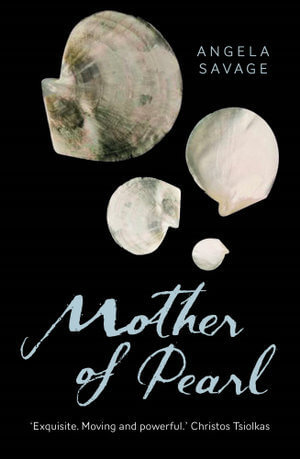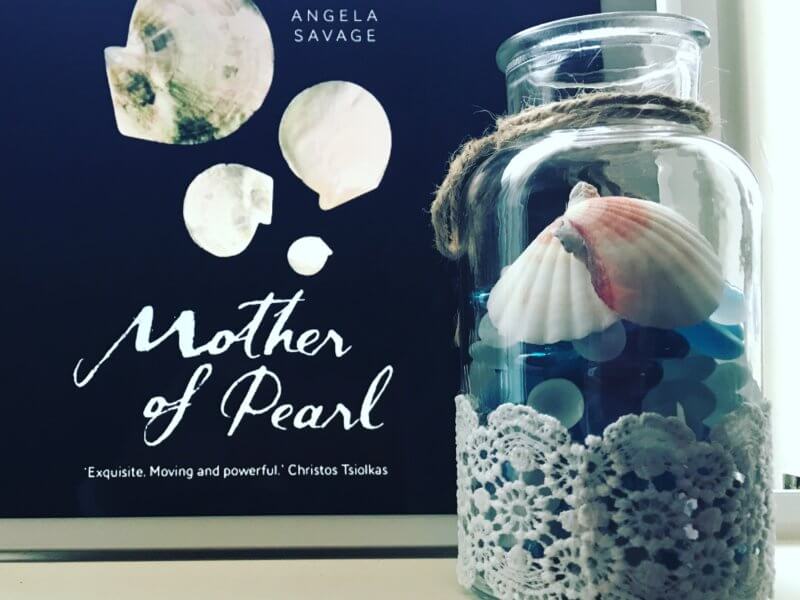
One of the best things about books is that they bring knowledge about topics and places I had not yet imagined to search about. Mother of Pearl, by Angela Savage, is a novel about surrogacy from three unique perspectives – the mother, the surrogate mother and the sister of the mother. Set in Thailand, this book reveals the intricacies of surrogacy in Thailand as well as some problems with adoption that parents sometimes face when adopting from other countries. The synopsis hooked me to this book so take a look at that before I continue:
A luminous and courageous story about the hopes and dreams we all have for our lives and relationships, and the often fraught and unexpected ways they may be realised.
Angela Savage draws us masterfully into the lives of Anna, an aid worker trying to settle back into life in Australia after more than a decade in Southeast Asia; Meg, Anna’s sister, who holds out hope for a child despite seven fruitless years of IVF; Meg’s husband Nate, and Mukda, a single mother in provincial Thailand who wants to do the right thing by her son and parents.
The women and their families’ lives become intimately intertwined in the unsettling and extraordinary process of trying to bring a child into the world across borders of class, culture and nationality. Rich in characterisation and feeling, Mother of Pearl, and the timely issues it raises, will generate discussion amongst readers everywhere
The Short Take – From Goodreads
Mother of Pearl is a beautiful story about two sisters, Anna and Meg. Meg and her husband, Nate, have given up on trying to have a baby after trying various treatments for about a decade. When Anna returns home to Melbourne from living in Thailand, Cambodia and Lao for years, Meg learns about surrogacy in Thailand from Anna’s friends. Seeing a glimmer of hope, Meg embarks on the journey to have a child through a surrogacy agency in Bangkok. Anna decides to help her sister and meets Mukda, the surrogate mother. What follows is a story of women coming together to help each other without knowing how much this baby means to each of them.
Ultimately, family means everything. Whether it is the desire to build a family by having a child, or to support the family that one already has by being a surrogate, or give priority to the happiness of one sister, Mother of Pearl does a great job of showing all perspectives.
I found Anna and Mod to be powerful characters and the main storytellers. They offer support to each other that neither realizes that they needed each other as much as they did.
Angela has done an amazing job researching Buddhism, Thai culture, surrogacy there as well as showing the pain that people go through, especially those who are trying to have a baby.
The book is a powerful narrative on the ethical issues that one confronts in surrogacy, about the rights of the mother that bear the child, and the mother who keeps them.
Anna is an amazing voice throughout the story, voicing her concerns and doing her best to give the best to all the parties involved.

The Long Take – Themes for Thought
The Ethics of Surrogacy
A quick search of the term surrogacy reveals the following definition on Wikipedia:
Surrogacy is an arrangement, often supported by a legal agreement, whereby a woman agrees to become pregnant and give birth to a child for another person who is or will become the parent of the child.
Wikipedia
I had never looked into the subject before reading this book and had a vague notion of what it meant. The quick search on the term also revealed some frequently asked questions about surrogacy:
- How does surrogate mother get pregnant?
- Can a surrogate mother decide to keep the child?
- How much is surrogacy in the UK?
- How much does it cost to hire a surrogate mother?
These questions are starkly different from each other, yet they highlight some of the main concerns around surrogacy. While the first question is curious about the physical aspects of becoming pregnant as a surrogate mother, the second question points to the emotional and personal connection that a surrogate mother might have to her child and not want to let them go. The third and fourth questions point to the monetization of surrogacy in countries like the UK.
Mother of Pearl tried to answer all these questions, while highlighting the biggest question of them all – who is the mother, the one who carried the baby or the one who got to keep them?
The fact that one can change surrogate mothers bugs Anna a lot and leads her to question the ethics of the practice in Thailand, researching the contracts the surrogate signs. With examples of other women going to situations related to surrogacy and adoption, Angela does an amazing job of making the reader question the ethics as well and debate the right answer alongside Anna.
Sometimes the one thing we want becomes so fixed in our minds, that we forget that there are other people affected by this too. That was one of my biggest takeaways from Anna.
On Languages and Cultures
In Mother of Pearl, Meg explored the option of surrogacy in Thailand, far from her home country of Australia. Since her sister, Anna, had already lived there for many years, Meg asked Anna for help to communicate with the surrogate mother and make her more comfortable. It made sense that Anna and Meg tried their best to get to know Mukda, the surrogate mother, and support her in all ways that they could. They tried to get to know her, partly for the child as well who would share a Thai heritage. I liked that they were not like the stereotypical foreign families, showering presents on the surrogate mother without knowing her needs. This could not have been possible without Anna translating for her sister and Mukda.
Language is the way that we communicate. Emotions are universal and, if one is good at reading body language, they can depicture how the other person may be feeling. But most people are not, and that is the barrier that language helps to break down.
Since my move to Canada in 2014, I have been immersed in a multi-cultural society. There are people from all around the world here, speaking a variety of languages, following their customs and beliefs. But with such an affluence of identities, it is hard to truly know more than a couple. Depending on the friends I make, and the people I associate with regularly, I can only slowly continue to learn about this small subgroup over time.
Though I have been in Canada for 5 years now, I still don’t know a lot about the cultures outside of those I interact with. Like many, I wish to learn new languages but I admit that the languages I wish to learn remain the ones that are romanticized the most. After reading Mother of Pearl, I wonder if picking up a language based on a place that I want to visit in the future would be more helpful. I might not become as fluent as Anna was after years of living in Cambodia, Lao and Thailand, but I might still be able to hold a very short courteous conversation. 🙂

I am grateful to the publisher and the author for making an advanced copy of this book available to be through NetGalley, in exchange for an honest review. I truly enjoyed this book and would recommend it to all readers who enjoy ethical discussions, are curious about other cultures as well as love reading about family and relationships.
This is one of the best books I have read this year and I learned new things about Thailand and surrogacy.
Stay tuned for an exclusive interview with Angela Savage (available on the 1st)!
** Mother of Pearl is out on the 1st of August so get a copy and let me know what you think! Let’s have a book-discussion! **
Cover image: Photo by Matthew Fassnacht on Unsplash
Photo of the stones by Martin Sanchez on Unsplash

Be First to Comment